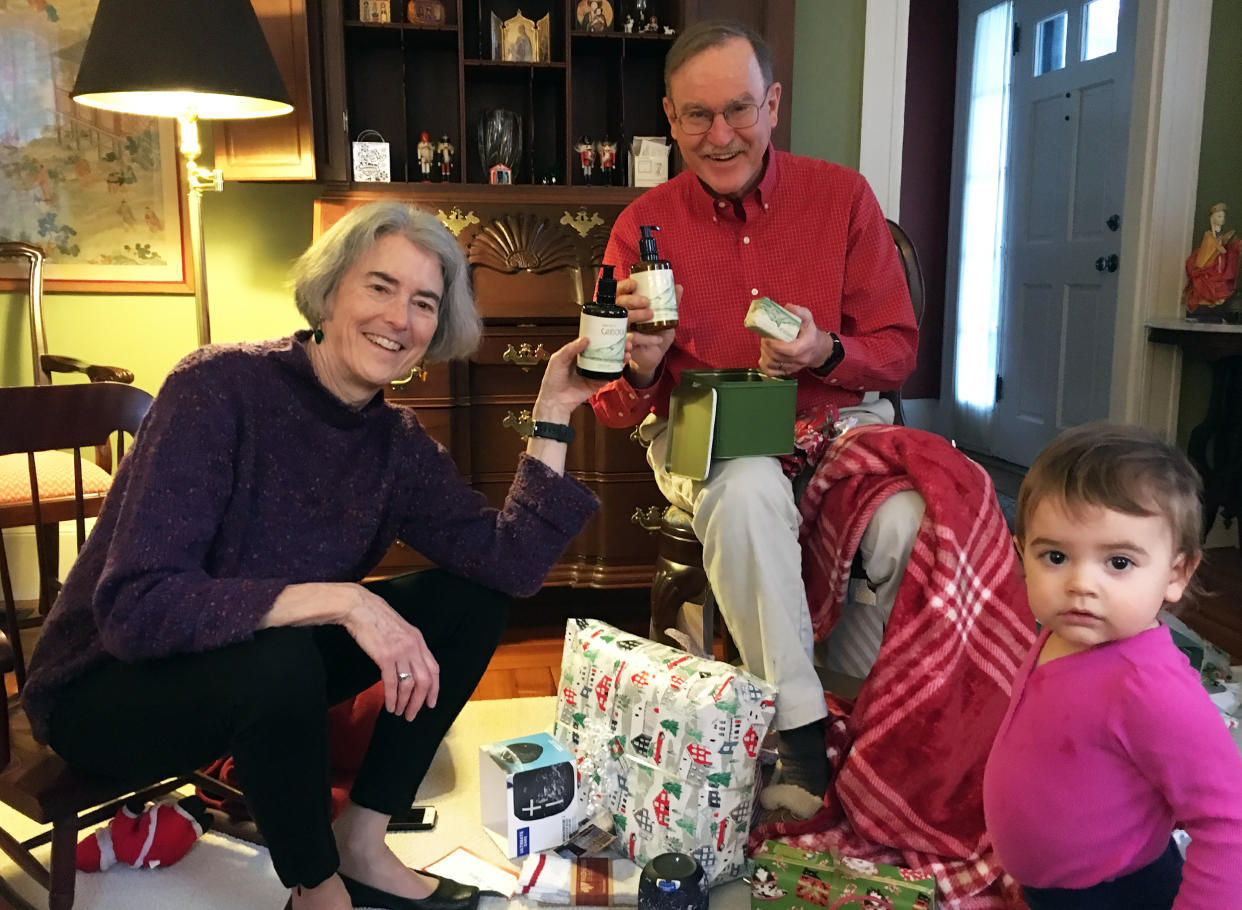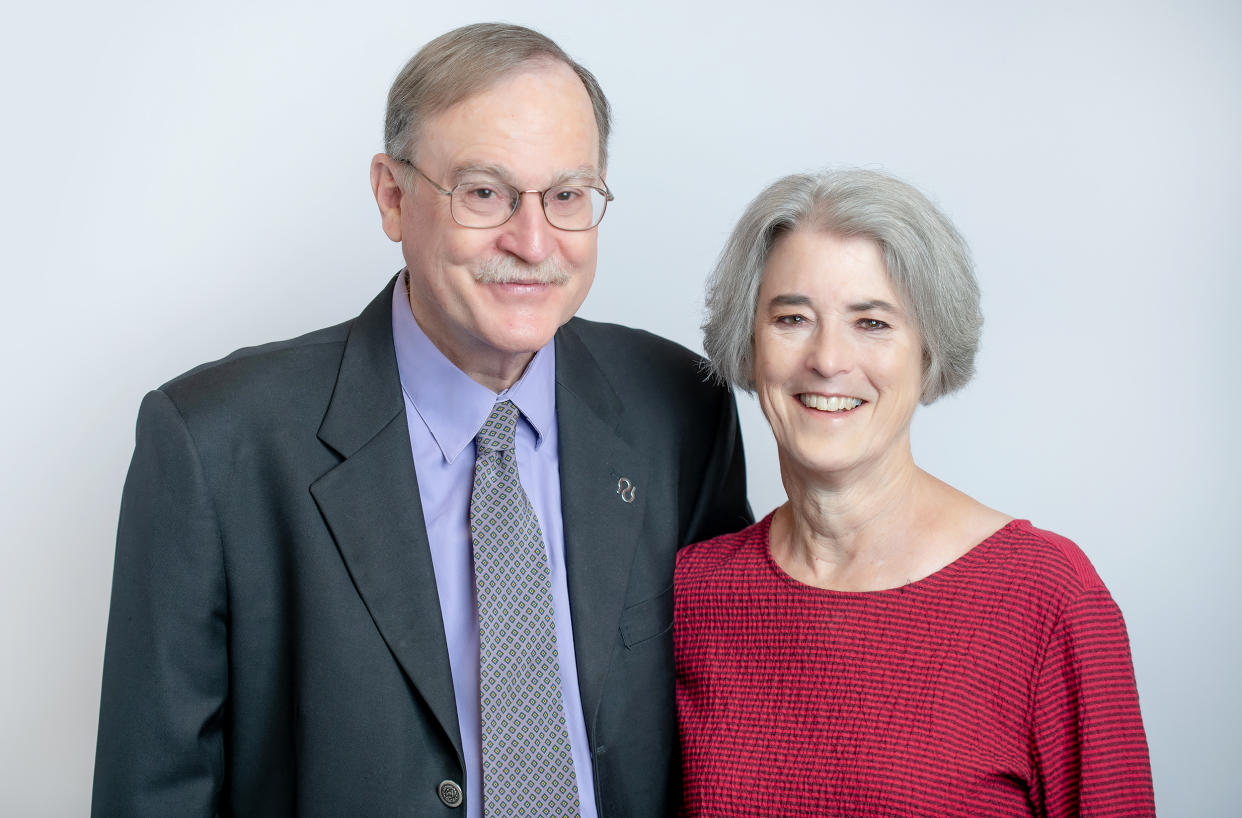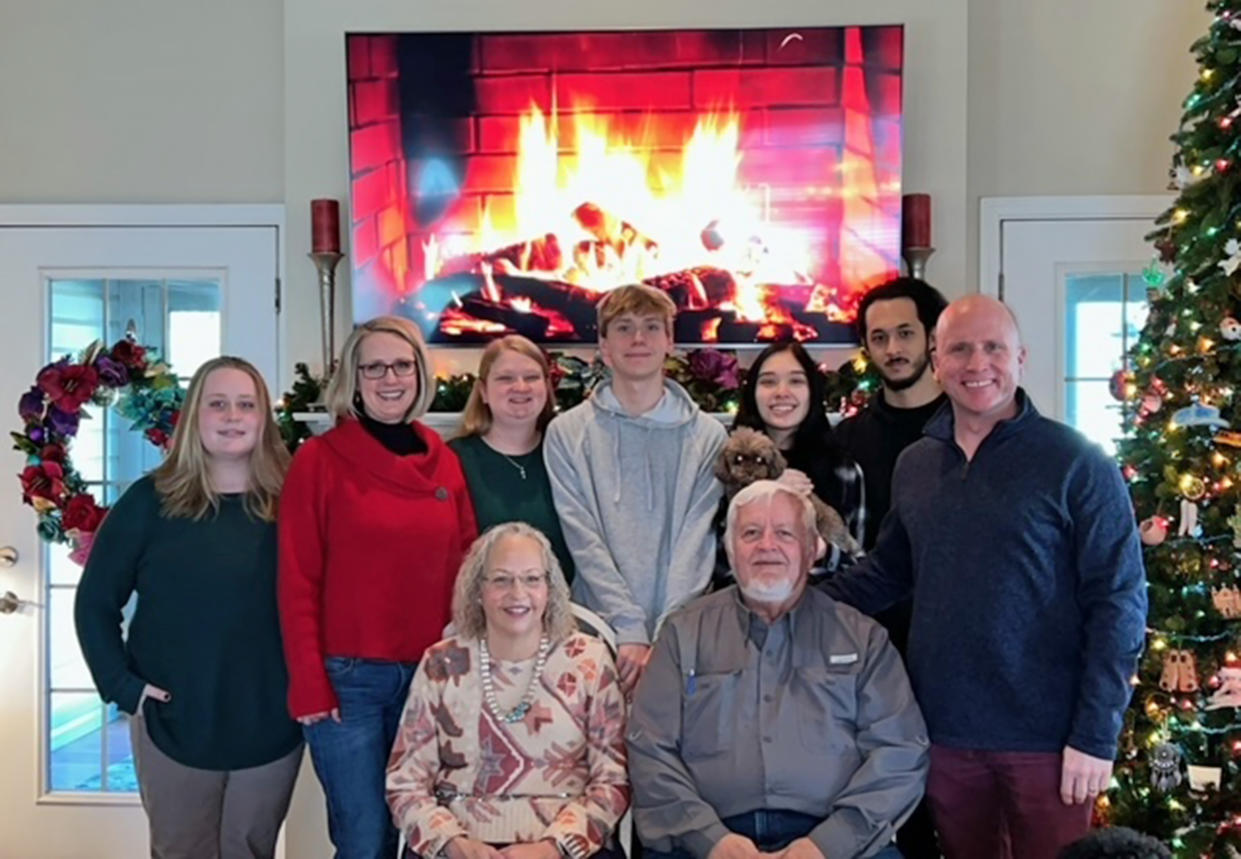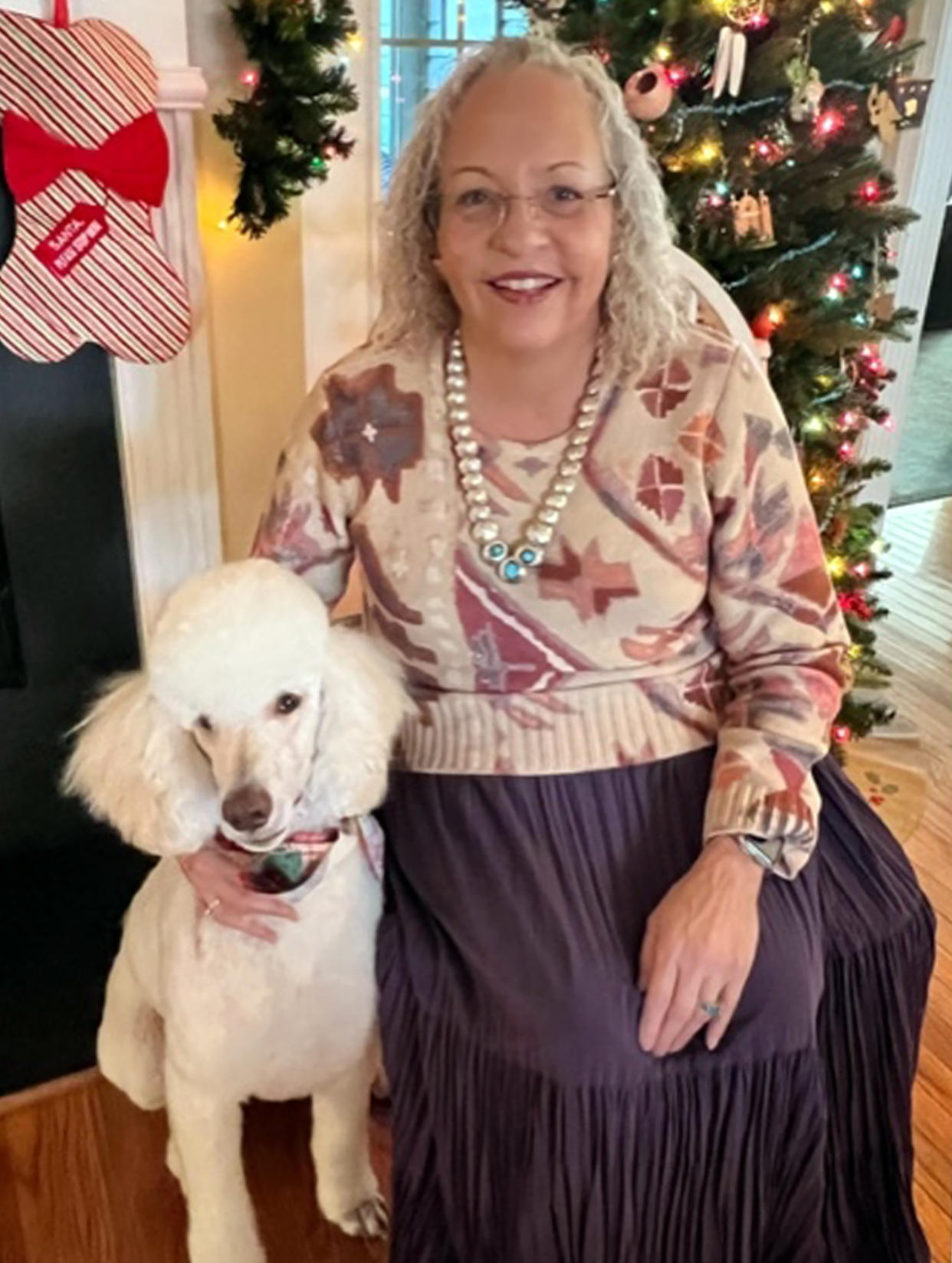These moms always made Christmas magic. After dementia, they share how things changed
Family gatherings are a holiday tradition at Betsy Groves' home. The Massachusetts resident, 73, planned, cooked and oversaw Thanksgiving and Christmas dinners for her husband, Tim, their adult children and spouses and their grandchildren. It was a role she cherished and reluctantly gave up last year when diagnosed with Alzheimer’s disease.
This Christmas, Groves' husband and their children are in charge. “It was hard letting go and letting others supervise,” she tells TODAY.com. “It takes a lot of planning, and I wasn’t up for the task.”
Groves first noticed cognitive changes in her late 60s. Back then, she taught courses on early childhood mental health and development at Harvard’s Graduate School of Education. “I felt I was not as sharp and on my toes in classroom discussions, and I started becoming anxious as I was preparing my lectures,” she recalls.

She shared her concerns with her primary care physician who reassured her not to worry. “She reminded me that memory loss was a normal part of aging and assured me that my years of higher education would help protect me from cognitive decline.”
While she respected her doctor, she still felt something was off. She talked to a friend in the medical profession who arranged for her have a neuropsychological evaluation. The results of those tests indicated a diagnosis of Alzheimer’s disease. It hit Groves hard. She felt numb and overwhelmed by the thought of sharing her diagnosis with her two daughters, siblings and other family members.
“Being diagnosed with Alzheimer’s was my worst fear,” she says. “I was worried that my diagnosis would change how people saw me and how they treated me.”
She needed advice, so she turned to the Alzheimer’s Association, where she spoke to a social worker who helped her process what was happening. She and her husband told family and close friends about her diagnosis.
“My fears that people would treat me differently were unfounded,” she says. “I’m fortunate to have a strong support system in place. And having my family know my wishes will guide them as my disease progresses.”
After talking to family and friends, she and her husband met with an elder law attorney to update legal and financial documents. She found the process sobering. “It was a major eye opener to see my name removed from long-standing legal documents that we had in place for our future,” she says.

Despite her diagnosis, Christmas is a bright spot because it brings her family together. “If I feel overwhelmed or tired, I can retreat to the bedroom,” she says. “Everyone understands.”
She also found support from others diagnosed with dementia at the 2022-2023 National Early-Stage Advisory Group, where she's a member. It’s here she met Reda Harrison, age 62, who received her diagnosis of mild cognitive impairment (MCI) four years ago.
Like Groves, Harrison enjoyed taking charge of holiday meals. “My biggest problem (now) is a lack of organizational skills,” she says. “It’s hard for me to plan and get everything cooked at the same time like I used to. My husband’s helping and my children are bringing the rest of the meal.”

Another change is that dinner is earlier in the day and guests will leave by 5 p.m. “because I have trouble processing information at the end of the day,” she says.
Accepting help from family took some adjusting. “My family is happy to assist,” she says. “Because of my lack of organizational skills, I also had to quit my job.”
She worked at the University of Kentucky in various departments for close to 30 years. Her cognition problems appeared suddenly following a vacation in 2018. Upon returning to the office, she felt confused, unorganized and overwhelmed despite the fact that she had always been a very organized employee.
When the situation worsened, she called the university’s neurology clinic for an evaluation. The diagnosis was dementia. “I didn’t know anything about dementia, and I was given no information or resources,” she says. “When you’re diagnosed with cancer or some other disease, the doctor gives you a plan or sends you to someone who can advise you. Why is Alzheimer’s treated differently?”
Frustrated and confused, Harrison gathered as much information as she could on dementia.
She connected with the Alzheimer’s Association and became active with a local early-stage support group.
A couple of years after her diagnosis, COVID hit and the university temporarily closed its doors. While on furlough, she realized she felt better without the stress of work. After applying for social security disability income, refinancing her home and paying down outstanding debt, she retired in 2021.
Retirement hasn’t slowed her down. In fact, she’s training her standard poodle, Dolly (named after Dolly Parton), to be her service dog. “Dolly knows where we live, and if I get lost, she takes me home,” she explains.

She’s also learning Spanish and taking piano lessons to challenge her cognition.
“Despite my diagnosis, I’m happier now than I’ve ever been,” she says. “I’m a spiritual person and had a difficult life in the past. I survived cancer. This diagnosis is different. There’s no cure. I’m at peace with that because I’m not spending my time searching for a cure. I’m here to share what I’ve learned with others and with my family. I’m surrounded by good people and am looking forward to being with my family this Christmas.”
Holiday tips for people with dementia and their family members
More than 6 million Americans live with Alzheimer’s, and approximately 200,000 people under age 65 have early onset.
“Alzheimer’s is a slow progressive disease that occurs over a number of years,” Beth Kallmyer, vice president at the Alzheimer’s Association, tells TODAY.com. “Those with early onset may experience minor memory changes. They’re still living independently and taking care of themselves.”
“Many of us like to think of the holidays as a Hallmark movie,” she says. “Unfortunately, it’s not. A diagnosis weighs heavily on family and friends.”
Kallmyer suggests people with dementia do the following:
Limit the number of family and friends. Large gatherings can be overwhelming.
Ask others to bring food and to help set up and clean up.
Have a brunch and keep it short. Two hours is ideal.
Do simple chores like setting the table or making one dish if you’re able.
Have a quiet space for the person with dementia who needs time alone.
For family members and other guests:
Never ask the person if he or she remembers you. It embarrasses some.
Have activities that the person enjoys, such as card games, music, and looking through a family photo album. “Music and old photographs evoke memories and get people talking.”
Keep the visit short. Visiting too long exhausts those with dementia.
Talk to caregivers ahead of the event to see how you can help.
Interact with the person.
If you or a family member or friend is diagnosed with dementia, call the Alzheimer’s Association’s 24/7 helpline at 1-800-272-3900 to speak with a social worker or counselor.
This article was originally published on TODAY.com
